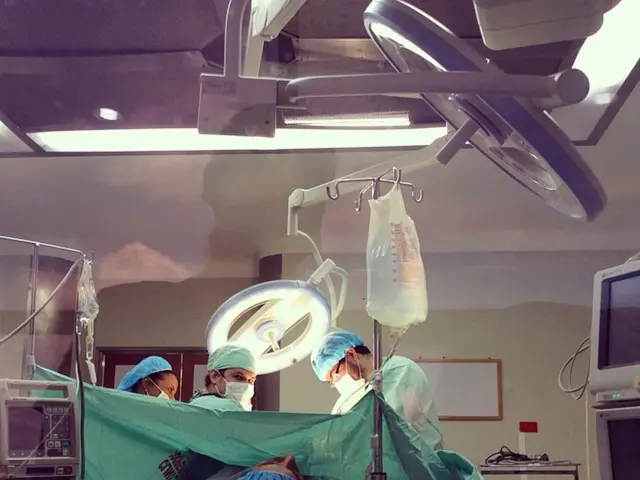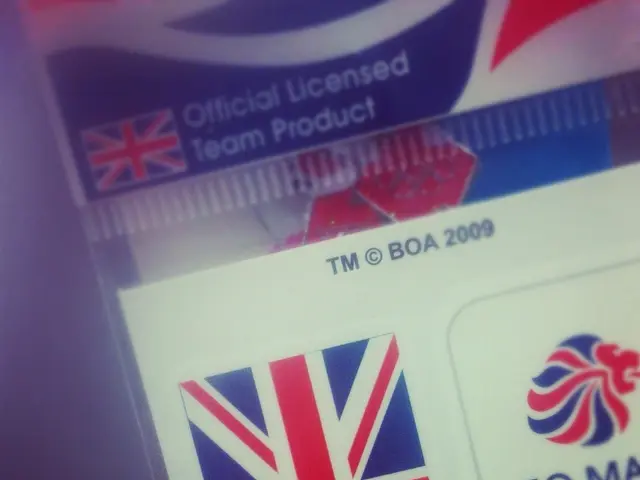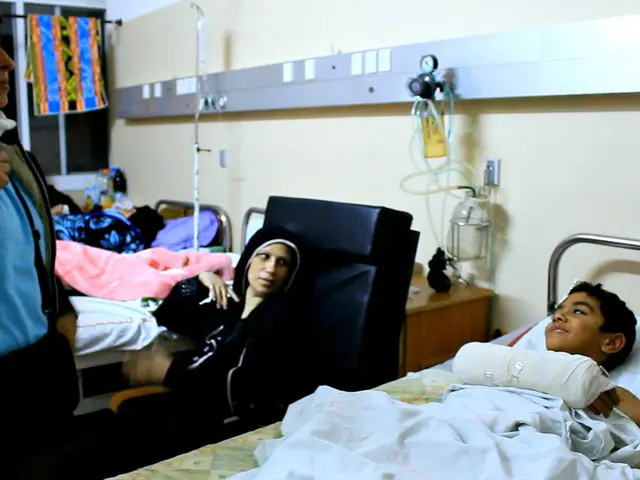Freenome releases key data from liquid biopsy tests, with FDA submission approaching completion
Freenome, a biotech company, has published data on a new blood-based test for colorectal cancer (CRC) detection in the prestigious medical journal JAMA. This test, which uses advanced multiomics and machine learning to analyze cell-free DNA and other biomarkers, aims for early detection with high sensitivity and specificity.
The test achieved a higher sensitivity (63.5%) for stage 1 cancer in the pre-specified analysis. However, it was least effective at detecting advanced precancerous lesions, achieving a sensitivity of 12.5%. In contrast, Exact Sciences' stool-based Cologuard Plus test, which is more established in clinical practice, has reported 43% sensitivity for advanced precancerous lesions.
The JAMA paper includes a pre-specified analysis that weighted test performance to match the sex and age distribution of the U.S. population. The study, which enrolled nearly 49,000 people aged between 45 and 85 years, met its primary endpoints. In the evaluable cohort of around 27,010 participants, Freenome reported 79.2% sensitivity for colorectal cancer and 91.5% specificity for advanced colorectal neoplasia compared to colonoscopy.
Early detection is critical for ensuring positive outcomes in colon and rectal cancer. The five-year survival rate for localized colon and rectal cancer is around 90%, while it is below 20% for cancer that has spread to distant parts of the body.
Freenome is working to improve the detection of advanced precancerous lesions through a test versioning strategy focused on assay and algorithm improvements. The company is also focusing on expanding multi-cancer early detection, which may provide an advantage in detecting multiple cancer types, including CRC.
Exact Sciences' stool-based Cologuard test, which is FDA-approved and widely used for CRC screening in average-risk adults over 45, has been shown to detect CRC with a sensitivity around 92% and advanced adenomas around 42%, with a specificity near 87%. However, studies show that FIT alone (part of Cologuard) can miss some cancers, and interval CRC rates following FIT or colonoscopy highlight limitations in colonoscopy follow-up quality. The stool test is noninvasive and has established reimbursement, making it accessible but with some false positives leading to colonoscopy.
Currently, Exact Sciences’ stool-based Cologuard test is more established in clinical practice with known performance metrics, especially for CRC screening in average-risk populations. Freenome’s blood-based test shows emerging promise with potentially improved patient compliance and early stage detection but awaits larger-scale clinical trial validation and regulatory approvals for widespread screening use. Each approach offers trade-offs between invasiveness, convenience, and clinical maturity.
- The FDA-approved stool-based Cologuard test from Exact Sciences, which is widely used for colorectal cancer (CRC) screening, has been shown to detect CRC with a sensitivity of around 92%.
- In a study published in JAMA, Freenome's new blood-based test for CRC detection used advanced machine learning and multiomics to analyze cell-free DNA and biomarkers, achieving a higher sensitivity of 63.5% for stage 1 cancer.
- The multi-cancer early detection focus by Freenome may provide an advantage in detecting multiple cancer types, including CRC, as part of their strategy to improve the detection of advanced precancerous lesions.
- While science and medical-condition advancements aim for early detection to improve health and wellness outcomes for colorectal cancer, as a five-year survival rate of around 90% is seen for localized disease, below 20% for cancer that has spread.
- The JAMA paper reported that Freenome's blood-based test, though showing emerging promise, awaits larger-scale clinical trial validation and regulatory approvals before it can be used for widespread screening, in contrast to Exact Sciences’ stool-based Cologuard test, which is more established in clinical practice.




